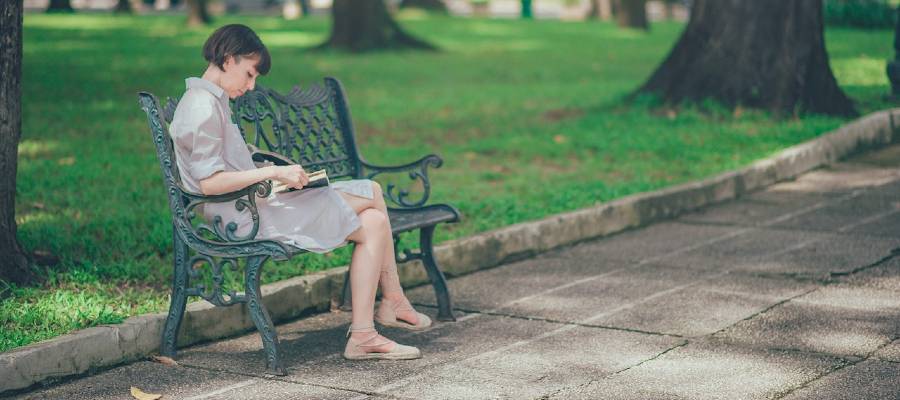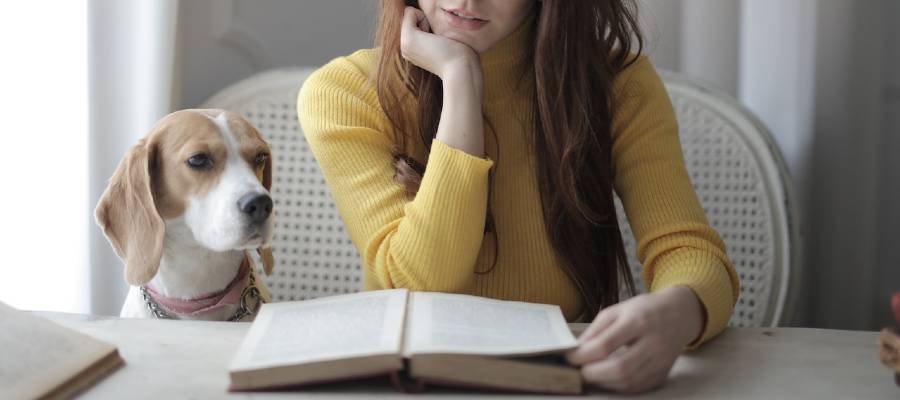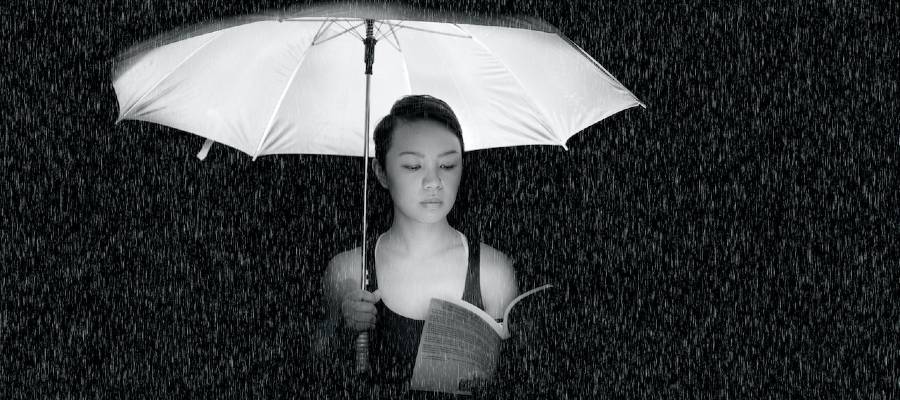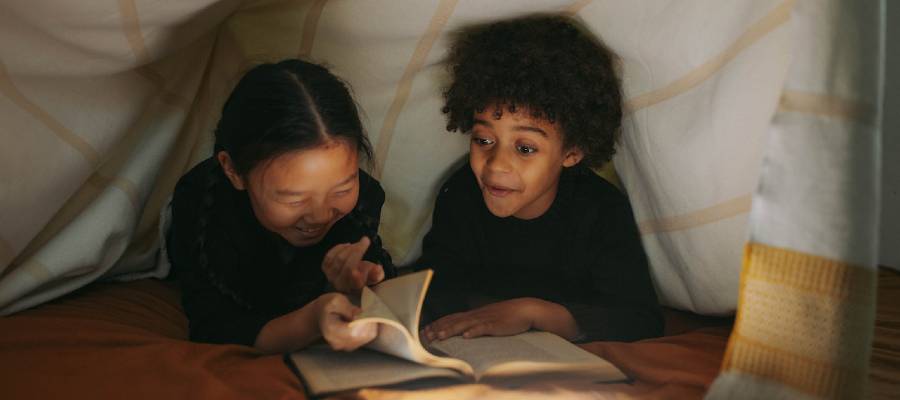How to Start Creative Writing
Below, you'll find an introduction to creative writing and a guide to getting started. For more advanced topics, please use the menu at the top of the website.
How to Start Creative Writing - Topics
• Intro• Genres
• Key elements
• How to get started
• Ideas
• Prompts
• Tips for better writing
• Becoming a writer
What is creative writing?

Creative writing is an art form using written language. It can be a means of self-discovery, as well as a chance to make something beautiful and touch readers' emotions. It gives you the power to create whole worlds from your imagination. If you love books, creative writing is a way to join the authors you admire in a literary tradition.
Types of creative writing
Here are some common types of creative writing.

1. Short stories
Writing short stories is a great way to learn the craft of fiction. The brevity of the form allows you to experiment with lots of different types of stories and storytelling approaches. A short story can achieve a kind of magic trick, creating the illusion of a complete, detailed world in a very small space.
2. Novels
Writing a novel offers the pleasures of a large, absorbing project. You get to spend months or even years inside your story, which can become like a parallel life that you're living.
3. Poetry
Writing poetry lets you work with language on many levels. Beyond the surface meaning of the words, you can use their sound, rhythm, and even the way they look on the page to create emotional effects in readers. Poetry includes traditional forms like the sonnet, along with free verse and prose poems.
4. Creative nonfiction
This includes memoirs and personal essays, where you write about your own experiences. Creative nonfiction is a way to preserve and explore your memories and share your unique perspective on the world.
5. Drama
Dramatic writing includes playwriting and screenwriting. It's not just about Broadway and Hollywood -- imagine the thrill of seeing your work performed in community theaters, schools, or other amateur productions.
Elements of creative writing

Important elements of creative writing include:
1. Imagery
You can make your writing vivid by including details that speak to the five senses: sight, sound, smell, taste, and touch.
2. Scenes
A scene is a sequence of events depicted 'in real time,' featuring play-by-play action and/or dialogue, and often including descriptive details.
3. Setting
A setting is the specific place and historical time where a scene happens; for example, present-day Brooklyn, or 17th century Versailles.
4. Characters
Stories, novels, and plays are normally about made-up characters that readers can come to care about. Many memoirs are written like true stories where the author is the main character.
5. Point of view
Many stories are written from the perspective of a particular character. Readers feel as if they're inside that character's head, watching the story's action through the character's eyes.
6. Dialogue
Dialogue is where you represent conversations by directly quoting characters' words. Playwriting and screenwriting rely heavily on dialogue.
7. Voice
The voice that tells a story is called the "narrator," while the voice in a poem is the "speaker." You can write using your own voice or adopt the voice of a fictional character.
8. Plot
This is the sequence of events that happen in a story, novel, or dramatic work. The central thread of most plots is the character's struggle to overcome a problem or reach a goal.
9. Theme
The theme is a central idea that underlies a piece of writing. A theme isn't something you have to consciously "put into" a story. It's often better to focus on your character and their struggle, and let the story's theme evolve naturally.
10. Pacing
Pacing refers to the speed at which the story seems to unfold. You can use pacing to shape the reader's experience; for example, slowing the story at key moments to create suspense.
11. Rhythm
The rhythm and flow of language affects a reader's experience and is particularly important in poetry. Some poetry uses meter, rhythmic patterns based on stressed and unstressed syllables.
12. Rhyme
Poems often make use of repeated sounds, including rhyme. Many traditional poetic forms use rhyme schemes, while free verse might use sporadic rhymes to create emotional effects.
How to start creative writing

The best way to get started is to just dive right in! Go ahead and write something!
If you've never written a story or poem before, that's okay. The only way to learn how to do it is by actually doing it.
Don't worry about doing it wrong. You won't break anything! If you don't like what you write, you can always improve it later. Or you can put it away and try something else.
The more you write, the better you'll get!
How to start writing a story
Want to start writing a story? Here's one approach to try.
1) Imagine a character and a problem that the character has to deal with. The problem will give your character something to do in your story.
2) Imagine a step the character might take to try to solve their problem. What would happen next? Daydream the scene from your character's perspective as vividly as possible.
3) Capture your daydream on the page. During the first draft, don't worry about choosing the right words or writing nice sentences. You can fix everything later, during the revision.
How to start writing a memoir
A lot of people want to write about their memories but feel overwhelmed by the problem of how to organize everything. An easy solution is to choose one vivid or important memory and just write about that. Try to recreate the memory on the page as vividly as you can.
If you write a lot of short pieces about separate memories, you might start to see patterns and get ideas for piecing them together into a book-length memoir. Or, you might decide to publish the short pieces as essays.
How to start writing a poem
There's no right or wrong way to write a poem, but you can try this approach.
1) Choose a subject for your poem. It can help to get really specific about this. For example, instead of writing a poem about "anger" or "love", you might focus on a particular moment when you were angry, or a specific gesture of love.
2) Concentrate on your subject. Explore it from different angles, searching for aspects of it that might not obvious at first glance. For example, if you're writing about a tree, closely examine that tree. What makes it different from other trees? What parts of it are hidden under the ground? What does it smell like? What does it remind you of?
3) Quickly write down the ideas that occur to you.
4) Once you have a rough draft of your poem, you can start playing with the language, experimenting with sound and rhythm and the way the words are arranged on the page.
15 creative writing ideas

Here are some exciting creative writing exercises to try.
1) Write a modern version of a fairy tale or myth. Give it a new twist.
2) Write a haiku, a short unrhymed poem with five syllables in the first line, seven in the second line, and five in the third line. You can learn more about haiku poetry and read examples here.
3) Challenge yourself to write a complete story in exactly 100 words. You can find tips on ultra-short stories here.
4) The sense of smell is closely tied to memory. Choose a smell to use as inspiration for a memoir or a poem. What memories does that smell bring back?
5) Use a painting or another piece of art to inspire a poem or a story.
6) Listen to a piece of music that you find moving. What images does it bring to mind? Write a poem that tries to capture the mood and feeling of the music. Or, if the song has lyrics, imagine the story behind those lyrics, and write that story.
7) Think of a time when you were afraid. Use that memory to inspire a poem or a story. Feel free to change details of the situation to make it more frightening or surprising than it actually was.
8) Imagine you found a secret door somewhere in your house. What might be behind that door? Use this as the starting point of a story or a poem.
9) Browse the website of an online bookstore like Amazon, searching for a book cover that really intrigues you (for this exercise, choose the cover of a book that you HAVEN'T read). Imagine what might be inside that book. Then try to write it!
10) Write a story or poem from a non-human perspective -- for example, from the point of view of a house, an animal, or a color.
11) Write a story or poem based on something you dreamed at night.
12) Write a story or poem that is completely dialogue.
13) Write about an argument you had -- but write about it from the other person's perspective. Try to imagine your way into that person's mind.
14) Write a story or poem in the form of letters, emails, text messages, or diary entries.
15) Find an old photograph of yourself. Remember or imagine the moment when it was taken, and use that as the starting point of a poem or memoir.
Creative writing prompts

1) Write a story or poem that includes all three of these elements: an eavesdropper, a secret kiss, and a fire in the kitchen.
2) Write a story or poem that includes this line: "Don't move," he whispered.
3) Every night, your character has been dreaming about the same house, a house they can't remember ever having seen before...
4) Write a story or poem that includes all three of these elements: a sinister Uber driver, a fake engagement ring, and a legend.
5) Write a story or poem that includes this line: The first time was the hardest.
6) What is one of your greatest strengths? Write a story or poem about someone who ends up in trouble because they don't have this quality.
7) Write a story or poem that includes this line: She was a wonderful liar...
8) Write a story or poem that includes all three of these elements: a dating app, a foreign language, and a nosy neighbor.
9) Think of someone very different from yourself in ways you're curious about. Write a story or a poem from this person's perspective.
10) Your character discovers a hidden door in their basement. Opening it reveals something surprising...
11) Write a story or poem that includes this phrase: Unfortunately, the tombstone...
12) Write a story that takes place entirely in the dark.
You can find hundreds more story starters and poetry prompts on our website.
Tips for better creative writing

1. Be specific.
Specific language and examples help readers form clearer mental images. For example, instead of using the word "bird", you can use a more specific word like "sparrow" or "crow". Or, instead of saying that your grandmother was a wonderful cook, you can describe some mouthwatering examples of her cooking.
2. Pay attention to all of the senses.
Beginning writers sometimes describe what things look like and forget the other senses: sound, smell, taste, and touch... Including details from multiple senses will make your writing more vivid and help to create an immersive experience for readers.
3. Show instead of only telling.
Showing something (with actions, dialogue, and imagery) tends to have a more powerful emotional impact than just informing the reader of it. For example, instead of telling readers that your character loves his son, you can show that character speaking tenderly to the son or making a sacrifice for the son's happiness.
4. Start with questions instead of answers.
Instead of setting out to teach readers a lesson you already know, you can use writing to explore issues and ideas that you struggle with. This approach is more likely to lead to interesting results because it takes you beyond the obvious.
5. Write a messy rough draft.
During your first draft, try not to worry about choosing the right words. Instead, focus your mind on the scene or subject you're writing about. This tends to make your writing more vivid and can actually help the language flow better. Save the editing for later.
6. Rewrite.
Once you complete a rough draft, go back and read what you've written -- first from the perspective of an ordinary reader, and then as an editor -- and look for anything you can improve
Becoming a creative writer

Here's some advice to help you succeed.
1. Become an observer.
The world is full of writing material if you pay attention. Be on the lookout for details you can use in your stories and poems, people you can convert into characters, interesting snippets of dialogue. Some writers find it helpful to keep a journal to record this raw material. Keeping a journal can also help you become more observant.
2. Establish a writing habit.
Consider committing to a regular writing schedule, even if it's only ten minutes a day. Many writers like to work first thing in the morning before other commitments get in the way. Keeping a writing schedule makes you less dependent on inspiration -- you learn how to write without it.
3. Read a lot.
Read the kind of thing you want to write -- for example, if you want to be a poet, it's important to read a lot of poetry. Pay attention to the techniques used by other authors, and try applying those techniques in your own writing.
4. Feed your imagination.
Reading feeds your imagination, and so can listening to music, looking at art, walking in nature, or exploring other subjects that excite you -- science, mathematics: whatever gets your brain firing. Instead of waiting for inspiration to find you, go hunt it down.
5. Have fun.
The more fun you have writing something, the more fun people are likely to have reading it!
6. Find a writing community.
Other writers can provide support and inspiration, as well as feedback on your work. Consider joining or forming a local writer's group. Or sign up for one of our online classes.
How to Start Creative Writing - Next Steps
Be sure to join our writer's email group for more tips on how to start creative writing. Also, check out these pages.
- How to start creative writing: short stories
- How to start creative writing: novels
- How to start creative writing: poetry
- How to start creative writing: memoirs
>>Back from How to Start Creative Writing to Creative Writing Now HOME